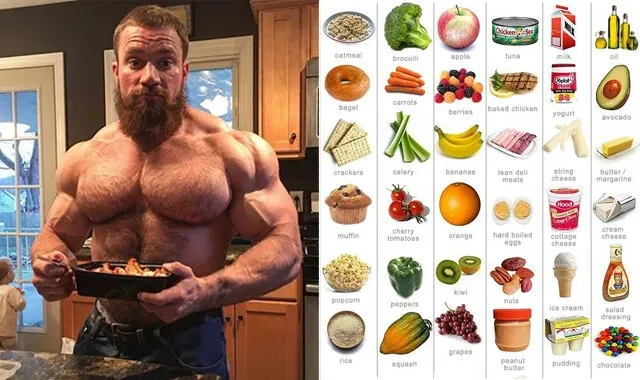The food you eat before, during, and after a workout can have a significant impact on your health and ability to achieve your training goals.
Still, wondering what to eat before and after a workout? Or if it is necessary to eat at all? These are important questions to ask. Because the right fuel can make a huge difference in your energy level, your mood, and your bottom line. So greatly influence your chances of re-training.
The world of pre and post-workout nutrition is confusing and there is no one answer. However, you should be aware that the food you eat before, during, and after your workout can have a definite influence on how you feel and whether or not you reach your training goals.
What to Eat Before and After a Workout
Depending on the time of day, the sort of training, and your unique goals, specific advice on what to eat, when to eat, and how much to eat vary greatly.
What to eat before a workout and how long to wait before exercising
To retain energy and grow muscle, it's best to eat a combination of protein and carbohydrates before a workout. Foods heavy in fat or fibre, on the other hand, should be avoided (think broccoli or sandwiches). They can upset your stomach and create cramping.
But what you eat before a 30-minute walk will be different from what you eat before a 20-kilometer training run. Here's what you need to know.
If you exercise for less than an hour
You don't have to eat first thing in the morning. Indeed, there may be an advantage in not eating before morning workouts that are not too intense. If you have an easy or light morning workout and are trying to lose weight, it might be best to drink a glass of water but not eat. This pushes your body to burn more body fat in order to fuel your workout. According to a study published in the December 2015 issue of the journal EBioMedicine, you can burn more fat in 24 hours if you train before breakfast than if you train later in the day.
But if you wake up hungry, you may need some food in your stomach before activity. Signs that indicate that you are too hungry to run empty are intolerable hunger pains, headache, lightheadedness or lightheadedness, irritability, or an inability to concentrate.
In these cases, even if you only have 10 to 15 minutes before your workout, eat a small amount of quickly digestible carbohydrates. Like 4 cl of fruit juice, a small banana, a handful of grapes, or a handful of cereal to ensure you have the physical and mental energy to move.
Other data suggests that this type of small, high-carb snack (or even a slightly larger 200-calorie snack) may also improve the feeling of relaxation after your workout.
If you exercise for more than an hour in the morning
You should then always eat a small amount of easily digestible carbohydrates. Like the options mentioned above, so you have the energy to continue your training. You will have enough time to digest and an even more substantial food of roughly 200 calories if you wake up at least 30 minutes before your workout.
Waking up with enough time to eat breakfast before a strenuous workout can be ideal. The extra calories in your body help prevent fatigue. So that you have enough energy to finish your workout at a time of the day when you might otherwise feel quite exhausted. You can push further when you have some fuel in you!
If you exercise later in the day and have had a meal in the past two or three hours, you should be able to do your workout without an additional source of fuel before the workout. But if you haven't eaten recently, you should have a 100-200 calorie snack within 30 minutes to an hour of your workout so that you are mentally and physically prepared.
How long should you wait to exercise after eating?
You should wait two to three hours after eating a meal before exercising. Wait around half an hour if you've just had a snack.
Do you need to re-energize mid-exercise with a sports drink?
The answer, for the vast majority of people, is no. Short-duration workouts (60 minutes or less), such as indoor training, yoga, light jogging, and CrossFit, can only be fed with pre-and post-workout meals or snacks. You don't need anything other than water during your workout.
People who perform longer endurance exercises, such as running or cycling for 60 to 90 minutes or more, however, benefit greatly from mid-workout fuel. It can delay the onset of fatigue and improve performance, according to decades of exercise science research.
After the first 60 minutes, you should aim to consume 30-60 grams (g) of carbohydrate per hour.
The best things to eat after a workout
Most people who do a moderate exercise session, one hour or less, do not need a specific recovery food if they are going to eat a snack or meal that includes a mixture of carbohydrates and protein. for a few hours after their workout. But athletes should be more careful about what they eat after exercise.
"Recovery nutrition" tends to be more important after intense endurance or strength training (for example, a 90-minute bike ride or weightlifting). Or when an athlete trains several times on the same day.
In these cases, it is best to eat protein and carbohydrates within an hour of exercising. This period immediately after training is when your body is most efficient at using the protein you eat to build new muscle and prevent your existing muscles from breaking down. Your body may also need additional carbohydrates to restore levels of glycogen (a form of carbohydrate stored in muscles). This helps fuel future exercises.





.jpg)



0 Comments